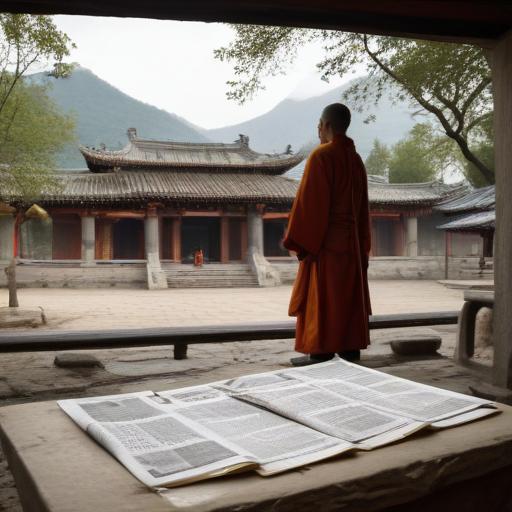The abbot of the Shaolin Temple, Shi Yongxin, has recently become the center of controversy following reports that he is under investigation. This news first surfaced on July 26, with various social media sources, including “Meipai,” claiming multiple reliable sources confirmed the abbot’s detainment. A follow-up statement from the account “Chuiyue Shuxing” indicated that the investigation may not be related to financial matters, adding to the ambiguity surrounding the situation.
Inquiries from media outlets, such as Phoenix Weekly, were met with uncertainty from the temple’s external relations officer, Zheng Laoshi, who suggested that the public awaits official announcements regarding Shi’s status. When media attempted to contact the temple directly, they encountered issues, including phone calls going unanswered and some monks choosing not to respond. This lack of clear communication has only fueled further speculation.
Additionally, the Jiangnan Metropolitan Report covered the claims about Shi Yongxin being taken in for questioning, noting that his social media presence had not been updated since July 24, prompting concerns over his public image. Shi has previously been scrutinized for his controversial mix of spirituality and commercialization, reportedly managing an annual business revenue exceeding 200 million yuan. His business practices have faced public criticism since 2015, when he was accused of receiving large sums of money and leading a questionable personal life. Although a 2017 investigation concluded there was insufficient evidence to substantiate the claims, rumors surrounding his offshore assets and relationships have persisted.
Shi Yongxin’s extensive involvement within the Buddhist community also raises issues about the intersection of religion and politics in China. He is currently the vice president of the Chinese Buddhist Association and has served as a representative in the National People’s Congress. This connection highlights the complexity and potential repercussions of his situation, as leaders in religious institutions often hold considerable political status.
For years, Shi has been dubbed the “CEO in a monk’s robe,” having built a notable business empire through various companies tied to culture, dining, medicine, and fashion. Although he has distanced himself from some of these enterprises, accusations of corruption, dubious private life, and rumors of overseas assets have remained persistent.
In a broader context, the investigation into Shi Yongxin occurs against a backdrop of escalating scrutiny within China’s religious institutions, where various allegations of misconduct have come to light. Recent events involving other high-profile monks, such as sexual assault claims against the abbot of Longquan Temple and controversies surrounding the monk of Xuan Zang Temple, have drawn society’s attention to the growing issues of corruption and scandal in the religious sphere.
This investigation may signify a shift toward more accountability within these institutions, and it remains to be seen how it will ultimately unfold. The situation represents a critical moment not only for Shi Yongxin but for the Shaolin Temple and the broader Chinese Buddhist community. As developments occur, many will be looking for transparency and resolution.
